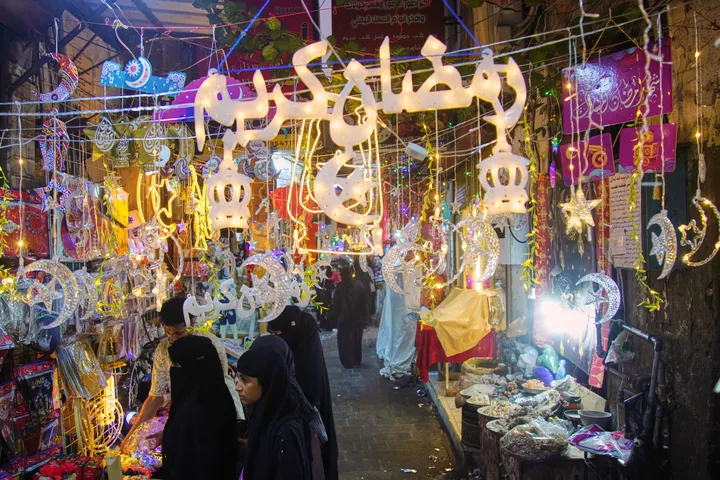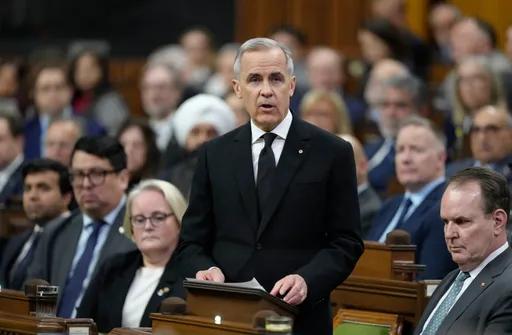In an already-lawless Lebanon, prisons border on purgatories.
Roumieh, for example, the country’s largest detention facility - which only years ago held the highest number of convicted militants per square metre in the world - operates at nearly four times its capacity. Inmates don’t have access to sufficient food, water, or hygiene products, which allows for the rapid spread of diseases and infections. Drugs are also allowed in by guards who are all too happy to profit from the situation. By recent estimates, at least 100 prisoners are made to share one toilet.
Last week, it was a fresh scabies outbreak that put Roumieh’s notoriously foul conditions back in the news headlines. The condition- caused by parasitic mites burrowing into and laying eggs inside human skin- is common in crowded places where skin-to-skin contact is unavoidable, and resources are lacking.
Rats were thought to be the cause of the last scabies outbreak in August, when the rodents were found in a prison water tank.
Hadi, who spent two years at the prison between 2018 and 2020, wasn’t surprised to hear of the outbreak, nor was he particularly fazed. For him, there were far worse things happening at Roumieh than mite-infested skin: he says during his internment he rarely saw sunlight; electricity was a blessing, sometimes accessible for less than two hours per day; and the food was enough for maybe one-third of the prisoners.
He’s visibly nervous, but unlike many of those who have spent time at Roumieh, he’s unafraid of the consequences of speaking publicly.
“It’s not for a human. It’s not allowed that a human be there or stay there,” Hadi says.
Gridlock
At the heart of prison reform in Lebanon is ministerial and sectarian infighting against a backdrop of widespread corruption. A 1949 decree gave the Ministry of Interior governance over prisons, and despite several decades of attempts to transfer the power to the Ministry of Justice, things have remained relatively unchanged for the last 70 years.
For advocates and authorities alike, transferring power over prisons to the Ministry of Justice would mean better treatment for prisoners as authorities and guards would be better trained to handle the ins and outs of a prison. Currently, the Internal Security Forces, or ISF, which falls under the jurisdiction of the Ministry of Interior, are charged with prison management. But prison guard is a job many ISF members are less than enthusiastic to be tasked with, and ill-prepared to perform, leading to a wide array of human rights violations. Beyond the allegations of torture by former prisoners and NGOs - the United Nations has called torture in Lebanese prisons ‘systemic’- that have mostly been unanswered by authorities, five ISF members were arrested in 2015 after videos surfaced of them beating, kicking, and mocking handcuffed inmates.
No concrete measures have been taken since to ensure similar incidents do not occur.
While the transfer of power to the Ministry of Justice represents a possible solution for prison reform, it would be no quick fix, either. To start, the Ministry of Justice’s budget is but a fraction of the Ministry of Interior’s. This presents hurdles for a Lebanon that has historically spent very little on prisoners compared to the rest of the world, and is currently facing one of the globe’s worst financial crises since the mid-19th Century due to corruption, mismanagement, and a lack of communication within ministries that are tightly bound to sectarian politics, including the Ministry of Justice.
Interestingly enough, the last time prison reform was perhaps taken seriously in Lebanon was in the aftermath of the October 2019 anti-government protests, when politicians, in deep need of public trust that they could work across party lines, reignited talks of a 2018 draft law that would release or abbreviate the sentence of thousands of prisoners and null arrest warrants for tens of thousands of others.
Despite increased public pressure due to the spread of the coronavirus and the deteriorating conditions in the country as a result of continued freefall of the local currency, the law was never passed, and conditions have only continued to worsen in prisons like Roumieh.
According to Fadel Fakih, the Executive Director of the Lebanese Center for Human Rights, a non-profit human rights organisation based in Beirut, the problem starts at the top.
“Justice for people in prisons, it’s their right to a good environment. That requires good management. Good management means preventing overcrowding, it means coming up with solutions,” he says.
“But there’s no decision-making happening at any level, especially at the level of prisons. We don’t have a proper state. It’s not functional.”
For Hadi, prison is an exaggerated extension of the current state of the country, ripe with both sectarianism and near-anarchy. According to him, prisoners are separated not by crime, but by religious sect.
“When I entered, they looked at my ID and they put me with the Shia, because that’s what they do with everyone. Christian? You go there. Sunni, there, Shia, there,” he recounts.
While he admits that the system does work to prevent sectarian issues which still plague Lebanon, the result of grouping by sect - not crime - is not particularly pleasant, either. While he was imprisoned for a drug crime, his cellmates were in for armed robbery, identity theft, and incestuous rape.
The exposure to such crimes, he says, is what leads to lawless conditions within the prison and the near-50 percent recidivism rate.
“The government is mafia, the prisoners are mafia, and the guys inside is mafia. They work inside. They sell drugs. It’s another world in the prison,” he says.
And there’s no avoiding interaction with fellow cellmates, according to Hadi, because inmates are forced to rely on each other and each other’s families for the basic necessities that the prison does not supply, like blankets, food, and hygiene products. Even donations by organisations like the Red Cross can’t possibly be enough, he says, because such products are meant to be supplements, not the sole resources available.
“When you enter the prison, they give you nothing. You even have to buy your cell. If you can’t afford a cell, you sleep outside on the floor,” says Hadi.
Officials sing different tunes
Lebanese MP George Okais, who tweeted pictures of the recent scabies outbreak on Christmas Eve, accompanied by a scathing caption that called Roumieh “a stark example of the state's failure and dissolution”, seems no more optimistic about the state of prisons in Lebanon than Hadi is.
Sitting behind his desk in his private law office in the Beirut neighbourhood of Badaro, Okais says his tweet, while sparking enough interest for a few local news packages, hasn’t done much good.
The relevant officials haven’t reached out, and he’s not holding his breath.
“What is happening right now in Roumieh is a real shame, a real massacre for the prisoners. They don't enjoy any human right basics,” he says with a sigh.
Okais is no stranger to prison reform - or the lack thereof - in Lebanon. He helped craft the amendment that ensures detainees have the right to an attorney during questioning, and has been intimately involved in human rights since far before he became an MP. Continued problems in Lebanese prisons, he says, aren’t for a lack of advocacy or innovation in lawmaking.
Instead, the problems come as a result of a refusal to implement said laws.
“We have a law - an actual law, a current law - and the stakeholders are not implementing these liberties, so I think this is a big offence for human rights,” says Okais, who is a proponent of handing over prison responsibilities to the Ministry of Justice. But, he also argues that other, more drastic changes will be needed in order for prisoners to see the improvements that they are both desperate for, and entitled to.
“We have to say it very loud and very clear that this way of dealing with our prisoners is not human anymore,” he says.
But not all officials are willing to be so bold.
Days after Okais’ tweet made waves across Lebanon, the President of the Lebanese Physicians Syndicate, Dr Sharaf Abu Sharaf said in statements that the outbreak had been mitigated, with 90 percent of the scabies cases having been treated, and the Syndicate having secured additional medical care. According to him, four doctors now work four hours a day to provide medical care to Roumieh’s estimated 4,500 prisoners.
Interestingly, Abu Sharaf called on NGOs - not the Lebanese government - to support the prisons’ lacking resources, like blankets, clothing, beds, and hygiene products.
In a follow-up interview with TRT World, Abu Sharaf admitted that overcrowding remains a core issue, but again reiterated that the situation in Roumieh is “under control”, and said that the additional medical care should help to alleviate some of the prison’s problems.
Okais stops short of saying Abu Sharaf is misinformed, but he also refuses to dial back on what he knows is required.
For him, NGOs should only be a fraction of the equation.
“If you have a good civil society and good actions on behalf of parliamentarians on one hand, and an independent judiciary on the other hand, all the problems will be solved, in my opinion,” he says.
Back in the suburb of Khalde, Hadi is working hard to provide for his eight-year-old daughter.
He’s trying to build back the three years he lost whilst in Roumieh, which has proven especially difficult in light of the economic crisis.
Occasionally, he says, he wonders about the kind of person he would be had he not been traumatised by his experiences at Roumieh.
But by his account, he’s stronger not because of his experiences, but in spite of them.
“The problem is from the prison, from the government. They don’t support the prisons.”






















